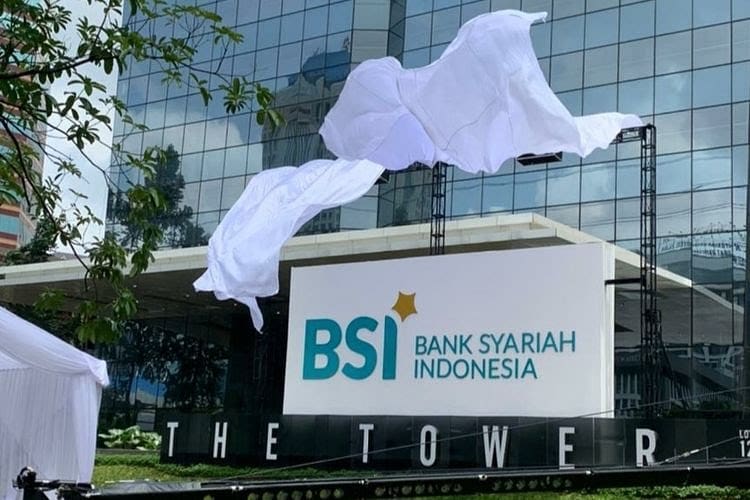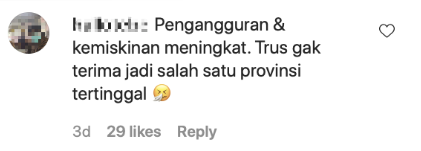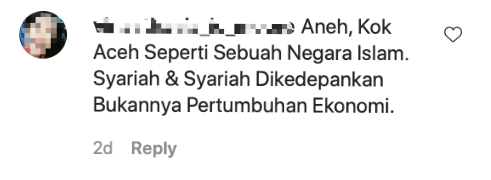Aceh government replaces non-sharia banks with sharia ones
Earlier this week, Aceh’s government announced that all non-sharia banks in the province will be replaced with sharia banks. This decision was taken to comply with regulation no. 11 of 2018 by the Aceh provincial government.
This means that all non-sharia institutions can no longer operate in the province and for them to do so, they will have to operate a sharia version of their organizations there – because Aceh aims to be fully sharia by 2022.
Sharia banks only
 The Aceh sharia court
The Aceh sharia court
Image credit: Si Gam/Wikimedia Commons
Regulation no.11 of 2018 states that, “Financial institutions operating in Aceh are to be based on sharia principles and will need to comply with these principles to run in the province”.
Although the rule was announced in late 2018 and implemented in early 2019, the government is now taking strict measures to ensure all financial institutions in the province comply with the rules.
Those who don’t will be sanctioned in various ways, such as paying a large sum of money, having their licenses revoked, getting their business operations frozen, and the immediate dismissal of the bank’s board of directors by force.
Hence, many local banks such as Bank Rakyat Indonesia (BRI), Bank Negara Indonesia (BNI), Bank Mandiri, Bank CIMB Niaga, and Bank Panin have closed down their conventional branches in Aceh and will replace them with sharia ones, as many already have a sharia banking system established.
However, Bank Panin has decided not to return to Aceh, although they have a sharia version called Bank Panin Dubai Syariah. The reasons for their complete withdrawal from the province are unknown.
Difference between conventional banks and sharia banks

Image credit: @perba.nksyariah
Apart from the obvious difference of sharia banks adhering to sharia law principles, there are a few differences between the sharia and conventional banking systems.
The first outstanding difference is the concept of interest. While conventional banks provide interest for the privilege of using your money for various investments and activities, in sharia banks, the concept of interest doesn’t exist. Instead, sharia banking has a profit and loss system, which means that if the activities done by the bank with your money create profit, it will be shared with you, but these activities result in a loss, you will not get additional money.
Another difference between the two banking systems is the concept of delayed credit and loans payments. While conventional banks can charge a penalty fee and interest on customers for repaying loans late, sharia banks do not charge penalty fees but they charge a bank rate and class repayments as debts. This means the later you repay your debts, the greater the amount that you’ll need to return to the bank will be.
Lastly, another major difference is the involvement of a sharia advisory board. All sharia banks require the presence of an advisory board providing advice and suggestions to the board of directors and in charge of supervising all activities so that they are in accordance with sharia principles – whereas conventional banks do not require the constant monitoring of a sharia advisory board.

Image credit: Good Faces
For Muslim customers, the presence of sharia banks makes it easier to follow the principles of Islam without links to activities that don’t comply with the religion. Besides avoiding interest, customers also have the certainty that the money they’ve stored will not be used for illegal activities such as drugs, prostitution, or other forms of entertainment that don’t abide by the principles of Islam.
The major move draws mixed reactions from netizens
Many netizens have expressed their opinion on this move by the Aceh government. Some have shown their support, while others were critical of it.

Image adapted from: Instagram
One netizen applauded the government of Aceh for this major move to become fully sharia. Their comment in Indonesian can be translated to, “Wow, I’ll admit that the government there is great and serious about adhering to Islamic rules. That means everyone from the public to government officials has one combined voice.”

Image adapted from: Instagram
On the other hand, another netizen referred to Aceh’s state of economic development in his comment in Indonesian, “Unemployment and poverty have risen. And they still won’t admit that they are a backward province.”

Image adapted from: Instagram
Another netizen complimented this major decision. They wrote, “Cool, Aceh, hopefully the rest of Indonesia can follow in your footsteps soon.”

Image adapted from: Instagram
Still, another netizen criticized the province, saying that it was acting as an Islamic country of its own. She wrote, “Weird, why is Aceh acting like an Islamic country? Sharia is always given more importance than economic growth.”
Aceh’s sharia banking can become a role model for other Islamic societies
While Indonesia as a whole has an Islamic economic masterplan in hopes to boost halal tourism and finances, Aceh has taken the lead in aiming to convert its banking system into a fully Islamic one, targeted for 2022.
We hope the conversion goes smoothly and Aceh residents can reap the benefits of a fully sharia province, and most importantly exemplify how sharia banking is beneficial to Muslims around the world.
Also check out:
- Gojek & Tokopedia merge into GoTo
- 6 things to know about Indonesia’s omnibus law
- Pre-design of the new presidential palace in the new capital
Cover image adapted from: Bankinfo and Bank Syariah
Enjoying The Smart Local Indonesia? Follow us on Facebook, Twitter, Telegram, and Instagram for more stories like this. If you have a story to share, email us at [email protected].






